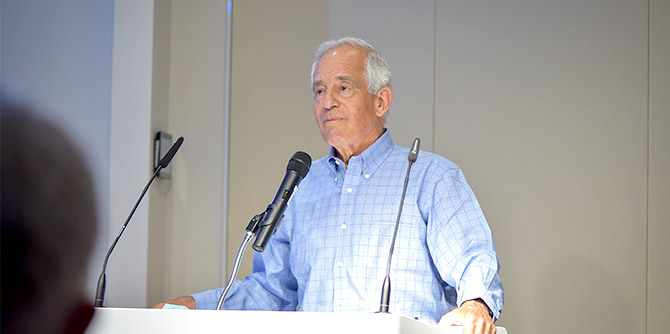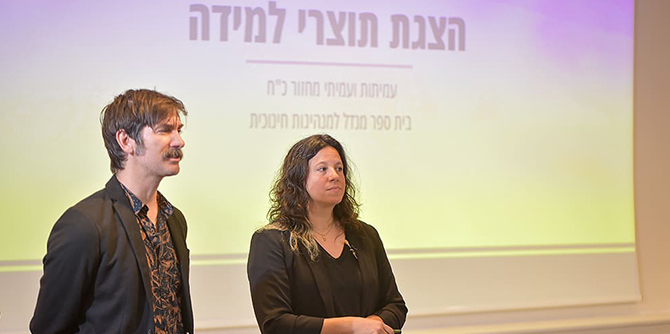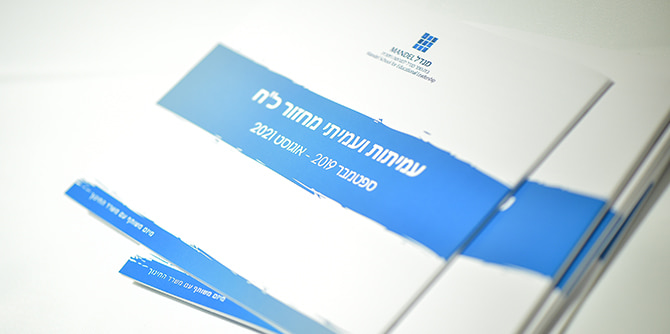At a two-day event held at the Mandel Foundation’s building in Jerusalem, the fellows of Cohort 28 of the Mandel School for Educational Leadership presented the products of their two-year program of study.
The event was opened by
Professor Jehuda Reinharz, president of the Jack, Joseph and Morton Mandel Foundation. “You are now entering the next stage of your journey, as you become members of our graduate community. Mort Mandel always considered our graduates to be a force that will change the State of Israel for the better. We have great expectations of you all, and I have no doubt that you will meet them,” Professor Reinharz said.
 Photo: Naveh Ben Shmuel
Photo: Naveh Ben Shmuel
Over the course of the two days, the 22 fellows of Cohort 28 presented the products of their learning journey, after two full years during which they experienced multiple challenges – starting with the outbreak of the COVID-19 pandemic, and continuing with the more recent political and military unrest in Israel. The presentations demonstrated how the fellows responded to these challenges with creativity, innovation and resilience.
The topics of the fellows’ presentations included place-based education; freedom and responsibility as driving factors in the educational process; learning communities that promote personal value; a framework for the optimal inclusion of families of children with disabilities, pedagogies that develop the self by means of practices that develop the ability to see the “other,” and more.
 Photo: Naveh Ben Shmuel
Photo: Naveh Ben Shmuel
“In 1931, the mathematician Kurt Gödel proved that the language of any consistent axiomatic system has statements that can neither be proved nor refuted, and that the consistency of the system itself can also not be proven. These are known as Gödel’s incompleteness theorems, and they form the cornerstone of modern mathematical logic,” said
Danny Bar Giora, director of the School. “Putting it another way, and using my own interpretation, which goes beyond mathematics: in order to be able to say something about the central characteristics of a system (e.g., its completeness, its consistency), it is necessary to look at the system, and indeed at the world, from outside its frames of reference, its rules, and the set of axioms that define it,” he explained.
“What does this idea have to do with us?” he continued. “I believe it is relevant in two ways: The first is related to the fact that over the last two years we took you out of the familiar world of practice in which you were deeply rooted, and helped you look at it from an external viewpoint, thereby improving your ability to understand it and to appreciate its completeness and incompleteness. The second relates to the gift you have received from your fellow cohort members, with their varied backgrounds and worldviews, who have enlightened you with their different perspectives and thus improved your ability to learn about yourselves,” he said.
The learning journey at Mandel has three main components: A process of developing and honing professional identity via theoretical study, clarification of worldview, and formulation of vision; close study of the relevant professional field, in terms of both theoretical research knowledge and successful practices; and formulating a proposal for intervention and action in the world of education.
For a full list of the fellows and the topic they presented, click here (English) >>
For a booklet of the fellows and their learning products, click here (Hebrew) >>
 Photo: Naveh Ben Shmuel
Photo: Naveh Ben Shmuel
